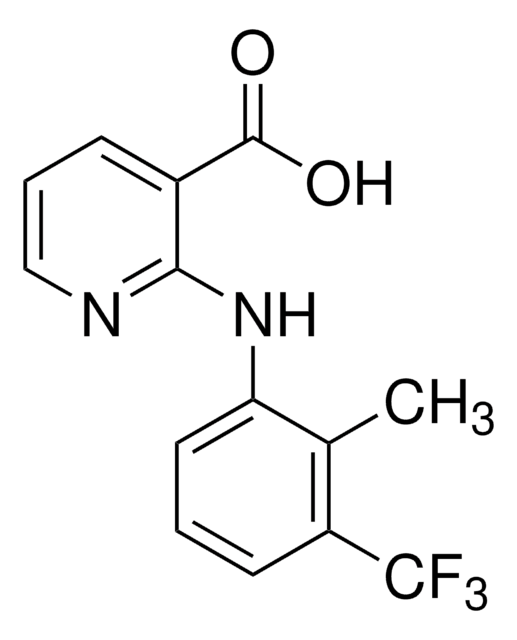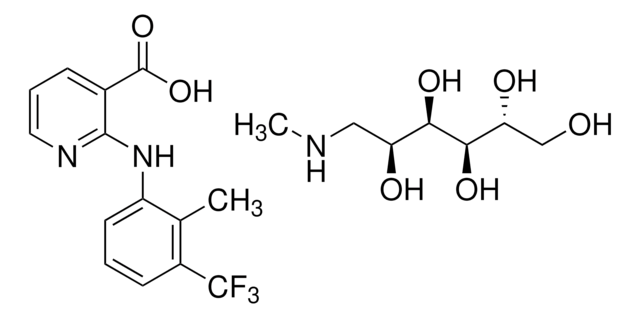34073
Tolfenamic acid
VETRANAL®, analytical standard
Synonym(s):
2 (3-Chloro-2-methylanilino)benzoic acid, 2-([3-Chloro-2-methylphenyl]amino)benzoic acid
About This Item
Recommended Products
grade
analytical standard
Quality Level
product line
VETRANAL®
shelf life
limited shelf life, expiry date on the label
technique(s)
HPLC: suitable
gas chromatography (GC): suitable
application(s)
forensics and toxicology
pharmaceutical (small molecule)
format
neat
SMILES string
Cc1c(Cl)cccc1Nc2ccccc2C(O)=O
InChI
1S/C14H12ClNO2/c1-9-11(15)6-4-8-12(9)16-13-7-3-2-5-10(13)14(17)18/h2-8,16H,1H3,(H,17,18)
InChI key
YEZNLOUZAIOMLT-UHFFFAOYSA-N
Looking for similar products? Visit Product Comparison Guide
Application
Biochem/physiol Actions
Legal Information
Signal Word
Danger
Hazard Statements
Precautionary Statements
Hazard Classifications
Acute Tox. 3 Oral
Storage Class Code
6.1C - Combustible acute toxic Cat.3 / toxic compounds or compounds which causing chronic effects
WGK
WGK 3
Flash Point(F)
Not applicable
Flash Point(C)
Not applicable
Personal Protective Equipment
Choose from one of the most recent versions:
Already Own This Product?
Find documentation for the products that you have recently purchased in the Document Library.
Our team of scientists has experience in all areas of research including Life Science, Material Science, Chemical Synthesis, Chromatography, Analytical and many others.
Contact Technical Service






